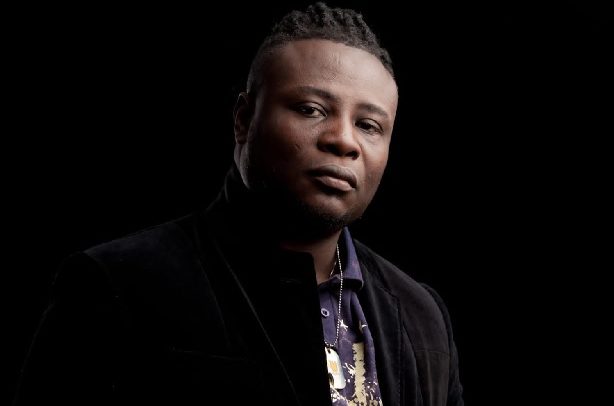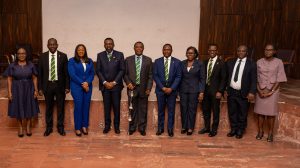
“The one who defecates on the road, will meet flies on his or her return.” – African proverb
Somewhere between the weird and wonderful, we long for that one act that blends seamlessly into one catchy, head-bobbingly addictive solution for all our woes. We assume something good would just happen.
That is why we believe in magic. And we want it so badly, many in our society behave as if we cannot live reasonable without some of it. When you stroll through our communities, we have more churches than businesses and yet we find it strange that unemployment is high? If we are not craving for magic, then we do not know what we want.
And when you consider that despite the high levels of professed religiosity, our society is rife with corruption; you realise our magically our thinking is. It is only magicians who walk around with the perception that we can have a corrupt-free society even if we are corrupt as individuals.
From our politics to our economics to our development, all we want is a little magic. Take our system of government for example, the executive is vested with all the authority to do whatever they so please. Yet if you careful analyse how they are selected and presented to the electorate, they do not necessarily represent any citizen, except the interest of their political parties, if they have any.
Interestingly, we expect that they would magically have our interests at heart when they come into office. If it is not magic we are looking for, then there is something off with our logic. The story is no different with how we want our society to progress. We do not want to have in-depth discourse on issues and policies, so as to enrich them; yet we magically think our systems should work like clockwork.
As a society, common sense does not seem to be sufficient to convince us to do what is right and proper when it comes to improving ourselves and our environment. Everything we do suggest we need some external phenomenon to inspire us to even be generous to one another.
We are so hooked on the supernatural, we are quick to surrender our freewill to anyone who says they can perform the unusual. Maybe, we are lazy and we desire something to happen out of nothing. We have forgotten our forefathers had to learn to make fire, to make clothes, to till the land, to build homes for themselves; and we have a responsibility to improve upon what they started.
God is not going to come down and make everything alright for us. That is why He created us with brains so that we can use our “creativity and imagination to shape words and images and structures and sounds to express our longings and frustrations, our confusions and revelations, our failures and triumphs.” There is no magic anywhere, except the magic inside us. We are “fearfully and wonderfully created.” Our Creator endowed us with enough creative abilities to be able to dominate the world around us. If we do would not use our abilities, but expect something magical to happen to us, we would be waiting for a long, just like nothing has happened to us in a long time.
Our daily life is full of wonder, if only you put on your appreciation cap. And it is true that there are unusual events. But these are not different from the usual if you appreciate that the life we experience every moment is no less no less miraculous than the magic you see in the unusual. St Augustine, writing in the fifth century, explicitly rejected the idea that the unusual are contrary to nature, holding instead that they are contrary only to our knowledge of nature.
That is why when you believe God is omnipotent, then His intervention in your life should not come as a surprise to you. It is the depth of your knowledge that shapes your attitude. That is why St. Augustine further argued that the unusual are made possible by hidden capacities in nature placed there by God. In other words, if our knowledge of what is naturally possible is limited, then we see the unusual as magical. But when we deepen our knowledge, they become normal and new potentialities may over time reveal themselves to us.
There are many things we have now that we take for granted. But if you brought individuals from five centuries ago into our era, they would be stuck with wonder. They would be so marvelled, they would spend all their moments praising God.
From aeroplanes, to space travels to the wireless transmission of the human voice over telephone, to televisions, to surgery and the transplantation of human organs. These were impossibilities a few centuries back. Many of them were undreamed of, much more to think about it. And if we happen to come back into the world a century or two from now, we would be so wowed by the kind of technology in use, we would be dumbfounded.
It is likely that as we strive forward, seeking understanding, through the senses God created us with, we will discover new capacities within ourselves and within nature that would enable us make the world wonderful. But until that time, we need to strive instead to reawaken our senses and utilise them for the good of today. Our creativity and innovativeness is the magic we need. So let us bring them out, and let us use them for improving our lot and our society.
__________________________________________________________________
Kodwo Brumpon is a management consultant and a life coach who inspires individuals, groups and corporate bodies to think and feel that which is true, and helps them to positively respond to that which is beautiful is, whilst nudging them to let goodness govern their actions. Comments, suggestions and requests should be sent to him at [email protected]
The post The Attitude Lounge with Kodwo Brumpon: Our thirst for magic appeared first on The Business & Financial Times.
Read Full Story

















Facebook
Twitter
Pinterest
Instagram
Google+
YouTube
LinkedIn
RSS